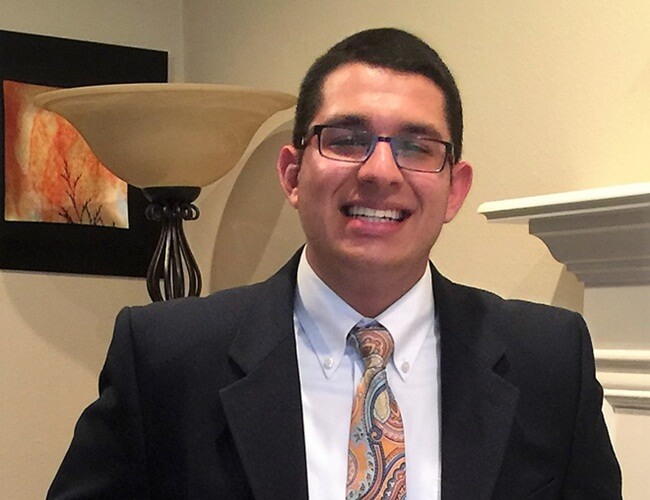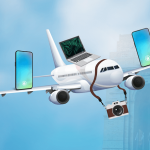“Even a small stone cast across the water can create ripples.” That is what 17-year-old Indian American Afeef Sheikh from Washington believes in. A crusader of literacy and young philanthropist, Afeef strives to make the best of technology for the benefit of humans, environment and the planet. One of the speakers at the 2016 TEDx Redmond, he is on a mission to help the needy and underprivileged children with learning materials across USA and developing countries including India. The US Department of Defense invited him to give a presentation on his cost-effective solution for amputees with rehabilitation challenges, which has fetched him several prestigious awards and titles at this young age.
IndianEagle catches up with Washington-based Afeef Sheikh, the founder of the Literary Crusade and the recipient of the 2016 American Junior Academy of Sciences Award, to share with you what keeps him on the go as a philanthropist, his views on the use of technology for noble purposes, and his inventions for the welfare of communities in the following interview at Travel Beats, a digital publication for Indian Diaspora.
IE. Would you like to brief us about the Literacy Crusade and its mission?
Afeef Sheikh: On February 4th, 2015, I founded a global initiative, The Literacy Crusade, with the intention of promoting literacy and a thirst for knowledge among underprivileged children and youth. Through The Literacy Crusade, I have experienced the challenges and struggles that children face across the world, and have come to realize that education can break the cycle of poverty and transform lives.
The Literacy Crusade has donated over 2,500 books, notebooks, writing instruments, backpacks, and desks to schools, orphanages, hospitals, and libraries across USA, Africa, Syria, India, Nepal, and Pakistan to help disadvantaged, at-risk, and autistic children. The initiative has funded school transportation projects in India, and sponsored annual tuition fees of needy children in Pakistan. Over 150 young readers locally have benefited from the classroom reading sessions.
The Literacy Crusade has empowered selfless individuals across the globe to make an impact in their local communities. We have appointed Global Champions in USA, Canada, China, and India. We also have a dedicated leadership team and student volunteer body at my high school. The Literacy Crusade has partnered with Project Launchpad, Hope Festival Foundation, and Sammamish Nourishing Network to increase its reach. Acknowledging these efforts, the SAMMI Awards Foundation recognized me as the 2016 Youth Spirit Honoree.
IE. Who or what motivated you to initiate such a noble campaign only at the age of 16?
Afeef Sheikh: Newton’s law of inertia states that an object at rest stays at rest, unless acted upon by an external force. My external force came in the summer of 2012 (at the age of 13) when I had gone to visit my grandparents in New Delhi, India. I remember we had just had a very satisfying lunch at a popular restaurant and sat down in our car to drive back home. As I put on my seatbelt, I noticed a boy who could not have been more than a year younger than me. He had tattered clothes, dirt-covered skin, and a somber look on his face. He was probably homeless. Before I could react we began to drive away. As the distance between us grew, I saw his skinny hand reach out in our direction. I knew he wanted anything: food, money, a change from the difficult life he was living. As he slowly faded from sight, I made a promise to myself. No matter what it took, no matter who it was, and no matter how little I could do, I would reach back. On February 4th, 2015, I founded a global initiative, The Literacy Crusade, with the intention of promoting literacy and a thirst for knowledge among underprivileged children and youth.
IE. You were recently invited to speak at the annual conference of the 2016 TEDx Redmond. How was your experience?
Afeef Sheikh: Since I feel so passionately about The Literacy Crusade, I decided to share my journey and learnings at the TEDxYouth Redmond platform to inspire others. It’s a sense of purpose that created an energy boost not only for myself, but for the audience as well. Overall the experience was very engaging and fulfilling. I am motivated to give a TED Talk in the future.
IE. What should be the ideal role of technology in human life or the welfare of human beings, according to you?
Afeef Sheikh: This era is called the ‘Age of Technology’. Today technology is present in every walk of our life, be it in business, education, communication, human relationships, transportation, banking, buying etc. It is helping us accomplish our daily jobs, and in performing better. Technology is adding value to our lives, and simplifying it. For the youth especially, technology has become an important tool in the education, social, and employment world.
While technology has transformed our lives enormously, it should never take us away for being humans. For instance, while email has become a common and quick way of communication, it can never replace the merits of face to face communication sealed with a hug or handshake. Technology has changed the way we interact, but it should not make us impersonal.
However, as the world is developing, technology is also changing. What works today might not be efficient tomorrow. Therefore, we have to learn to embrace new and emerging technologies.
IE. You have donated books and writing materials to the orphan children of a remote village school in West Bengal. How do you reach out to the needy and evaluate their genuine needs?
Afeef Sheikh: Tipligheri is a remote island village in the dense Sunderbaans mangrove forests of West Bengal, India. The only link between this village and the outside world is through small boats. The jungles are home to the famous Bengal tigers and crocodiles. Many of the children in this village have lost a parent due to the frequent tiger and crocodile attacks. Their first priority is survival, and access to educational materials is extremely limited. The Literacy Crusade partnered with Amrita-Seattle, a non-profit organization that works in West Bengal to deliver colored picture books and pencils to the children studying in the Tipligheri Primary School.
Perhaps the most gratifying moment was when you realized that your small effort has fueled the imagination of these children, and hopefully opened a window to a new world through the medium of books.
IE. How do you raise funds to help underprivileged children with tuition fees and learning materials?
Afeef Sheikh: Funds to date have typically been raised through generous donations by family members, friends, and community members. Initially when I started out I put all my personal savings to buy reading and writing materials. Through The Literacy Crusade Club at my high school, we are now planning to organize formal fundraising events. In the near future I intend to register my initiative as a non-profit organization so that we can receive contributions from companies.
IE. You have designed a cost-effective alternative solution to help amputees with rehabilitation challenges. Please share a brief about your invention.
Afeef Sheikh: There are an estimated ten million amputees in the world. In the United States, over 185,000 amputations are performed annually and approximately two million people need prosthetics. Individuals who lose access to their upper limbs have their lives substantially changed and need assistance to cope with their new lifestyle. Phantom Limb Syndrome (PLS) is the perception of sensations, often including pain, in an arm or leg long after the limb has been amputated. This syndrome is relatively common in amputees, especially in the early months and years after limb loss. Mirror therapy, a present method of rehabilitation, is estimated to be only 60% effective in upper limb amputees while also requiring expensive equipment and monitoring by a caretaker or technician.
I researched at the University of Washington to design a modern, affordable, effective and accessible alternative solution to address the rehabilitation challenges associated with PLS. Using the power of emerging technology such as Augmented Reality (AR) coupled with open source software, such as Unity3D and Vuforia, and commonly used devices like cellphones and computers, the prototype can read muscle activity and create an onscreen image of a virtual hand in place-of the individual’s lost hand and can mimic basic hand movements through the use of an AR camera. Possible subconscious psychological benefits may include helping the brain reconnect with the nerves at the amputation site and alleviate unnecessary sensations.
IE. How effective is the device for Phantom Limb Syndrome (PLS)? Has it been officially recognized?
Afeef Sheikh: Due to legal restrictions of me being under the age of 18, the efficacy of this solution cannot be tested on human subjects. This system is currently being forwarded to qualified individuals who have the necessary credentials to test the solution on patients.
I have showcased my solution at several engineering competitions. Recognizing its potential impact in treating war injuries, the U.S. Department of Defense invited me to present my work at the National Junior Science & Humanities Symposium in Dayton, Ohio. This has given me with the necessary impetus to develop further.
I received the 2017 Washington State Academy of Sciences (WSAS) Finalist Award, along with first place awards at the 2016 Washington State Science & Engineering Fair, and the 2016 Junior Science & Humanities Symposium. Additionally, I have received multiple honorable mentions, scholarships, and science excellence awards including most innovative project for humanity.
IE. You have also developed a business model to cut energy consumption in households. What is the potential of this energy-saving solution in the coming days?
Afeef Sheikh: Protecting the environment is something that I care about deeply. Leveraging the learnings of my environmental engineering course, I developed a business model to advocate green behavior in the residential market through the use of Energy Service Performance Contracting (ESPC).
The solution aims to provide homeowners with a comprehensive all-in-one improvement approach, and energy savings without upfront capital expenses. It offers residential energy audit, and finance loans for energy efficient improvements such as air conditioning, lighting, windows, insulation, solar panels, and water conservation etc. Approximately 20% can be saved on annual utility bills, and over the 7 to 8 years that a typical family lives in a home, one can save thousands of dollars in maintenance cost.
The environmental benefits of this solution include reduced carbon emissions, reduced GHG emissions across the board, environmental preservation, protection of certain species (ex: polar bears), better waste management, and preventing air pollution as the energy used in our homes often comes from the burning of fossil fuels.
The model was showcased at the 2016 Imagine Tomorrow competition, and won first place in the McKinstry Built Environment challenge. The solution was found viable by the contractors and individuals in the field.
IE. What challenges or difficulties have you faced during your journey of literacy crusade, community work and technological experiments till date? How did you overcome them (if any)?
Afeef Sheikh: The biggest challenge probably has been in managing the demands of a highly rigorous academic curriculum at school (majorly comprising of Advanced Placement/ College Level courses), and the rest of the extracurricular activities (research, community outreach, student board leadership duties, internships, business competitions, rowing etc.). Along the way I have encountered many obstacles, and have tasted both success and failure. However, I learnt that I had the courage to step outside my comfort zone and take risks. Only when you push yourself beyond the limits of your physical capability, you can achieve extraordinary results.
IE. Any future project or plan that you are eying on…
Afeef Sheikh: My immediate goal is to get accepted to a good college that offers a solid engineering and research program. This will nurture my desire to learn further, to connect with great minds who are contributing to our world in different ways, and encourage me to take risks and go beyond defined boundaries. I hope to build useful solutions in the future that can help in transforming lives.
Travel Beats is a digital publication by IndianEagle, a leading travel organization for Indians in USA. IndianEagle connects with Indian Americans and connects them with India through NRI news, editorial features and interviews on Travel Beats. As part of its CSR activity, IndianEagle writes about philanthropists and social activists from the Indian community to promote their contributions towards community development, social progress and Humanity.





Not that before Newton propagated laws of gravitational forces apples were not falling down to earth or for that reason before Archimedes shouting, “Eureka,Eureka” found displacing equal amount of water to that of volume of his body to formulate laws of specific density; similarly we in India often overlook the plight of children begging on traffic crossing points. It is Afeef Sheikh who, even though born in India and now hails from USA, found the opportunity to help the downtrodden children through his crusade of literacy. Leave aside USA, many students of his age in India wouldn’t be knowing about the horrific habited conditions of Sunderbans. Afeef Sheikh is a shining star and we, as his grandparents, wish him success in his Literacy mission and assure him of regular donations and help from time to time. We urge fellow readers/viewers to donate books/writing material/funds for this noble humanitarian crusade. Also, we wish him success in times to come for the mission of alliviating pains of amputees of phantom limb syndrome (PLS).
Great interview! Thank you Mr. Agarwal for taking the time to talk to Afeef, and for giving him the opportunity to share his biomedical & environmental engineering related work, his community outreach efforts through his initiative “The Literacy Crusade”, and related experiences.